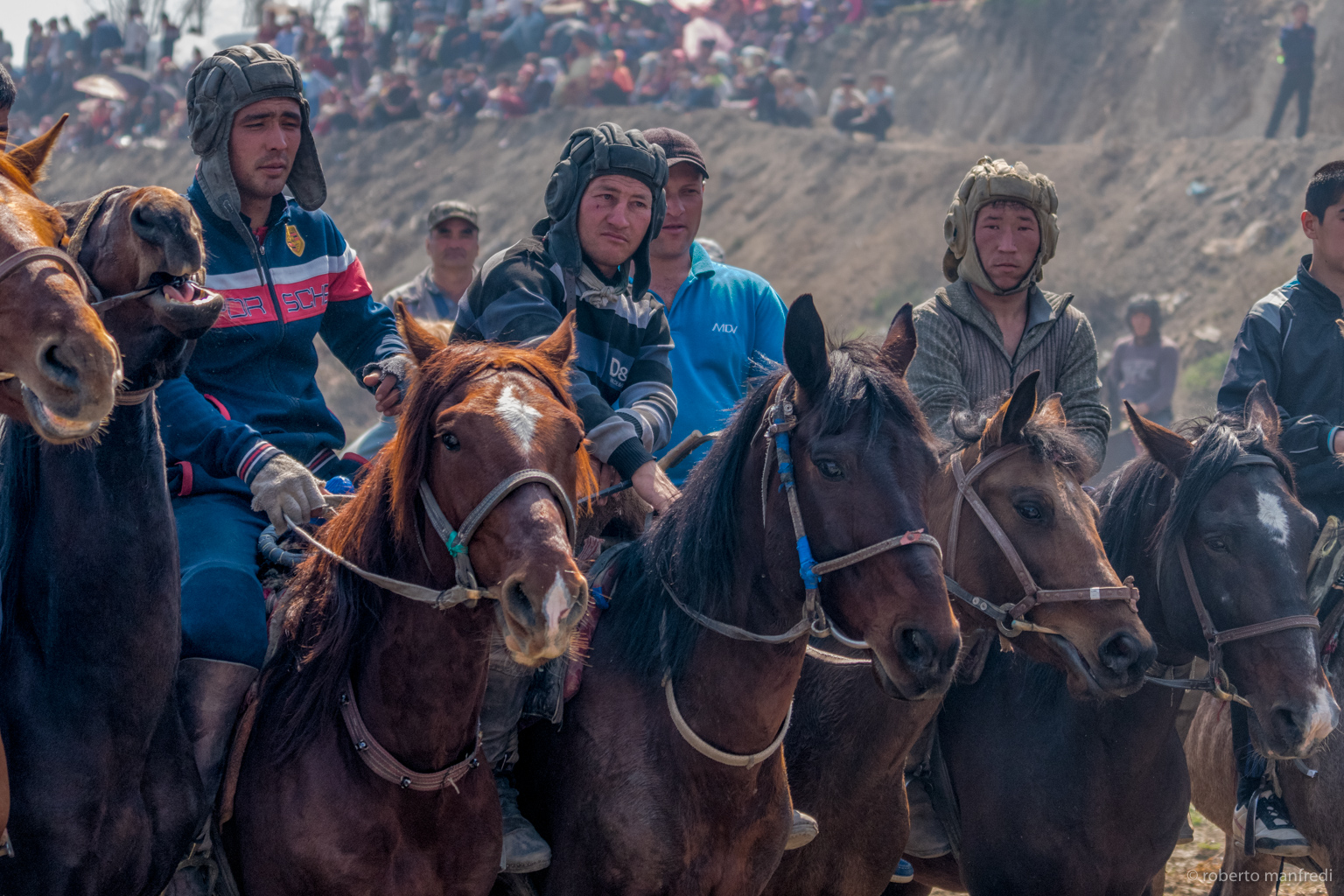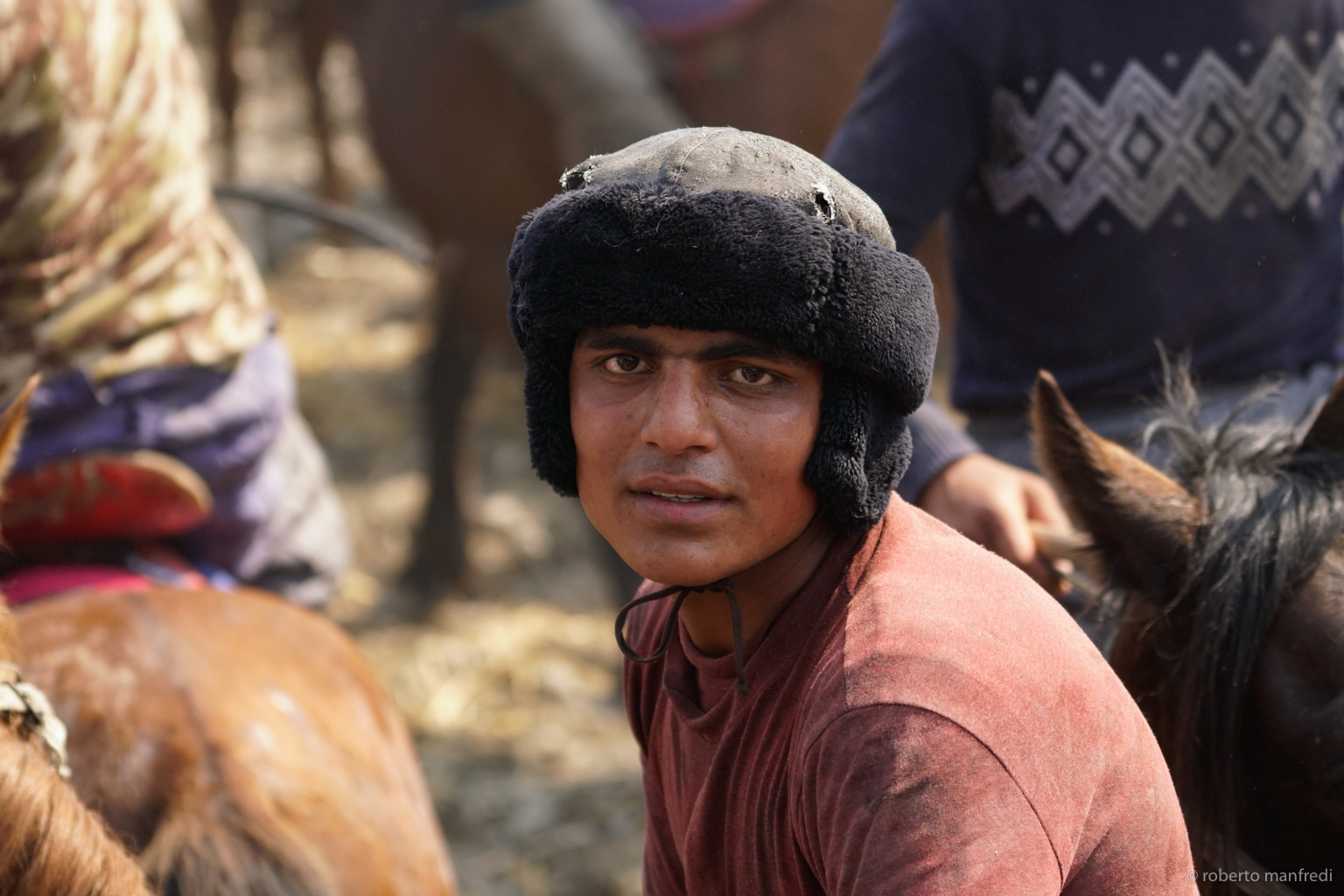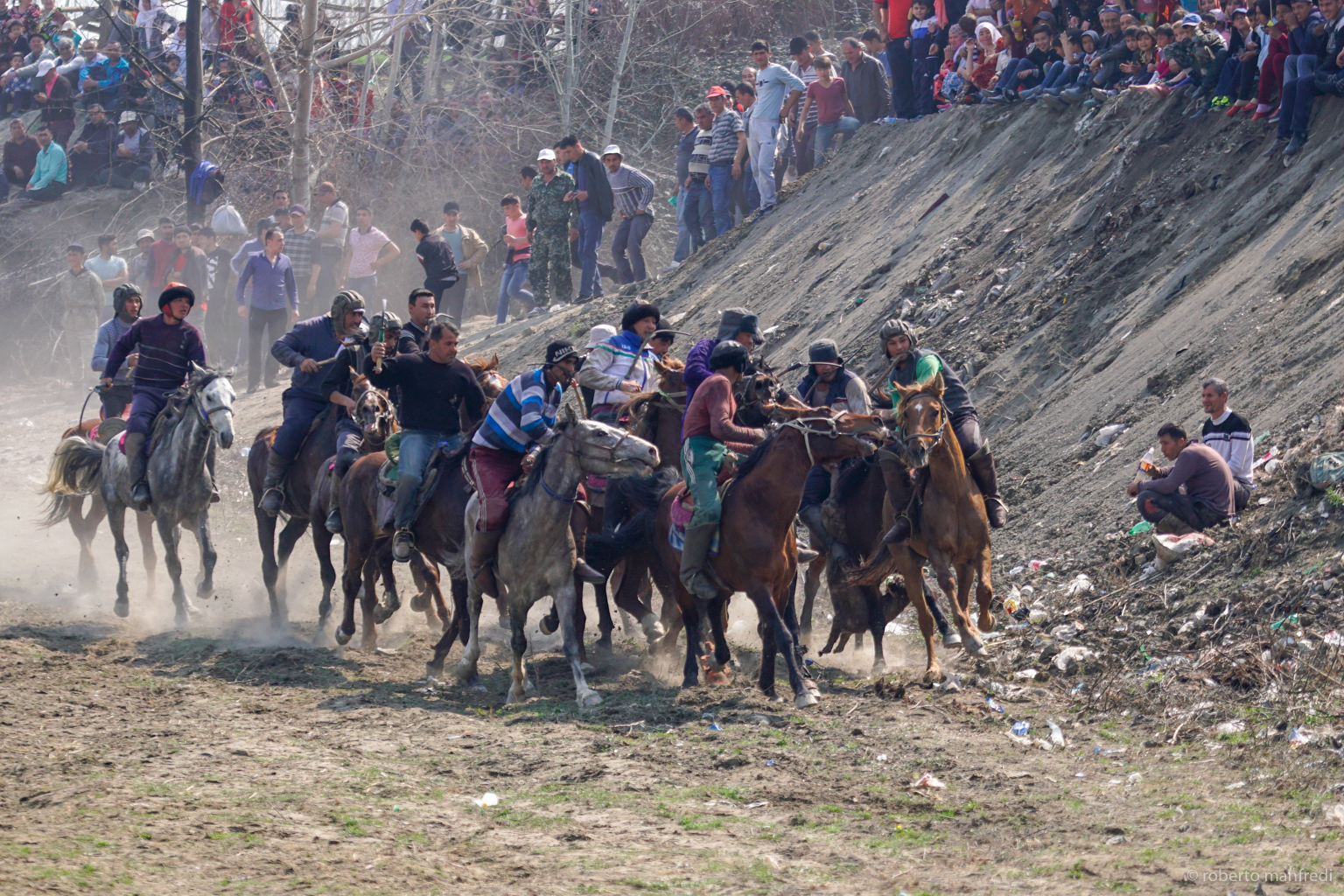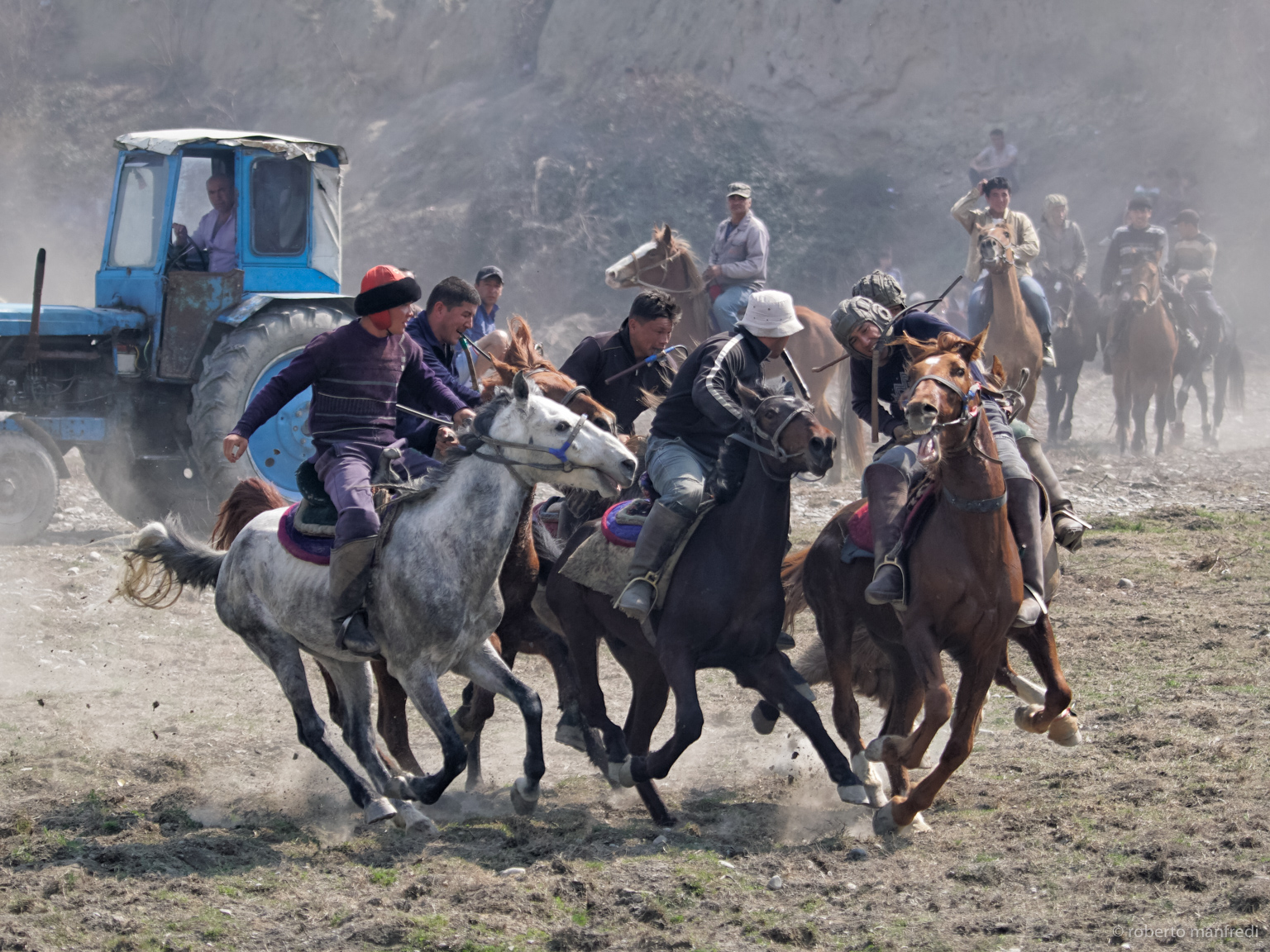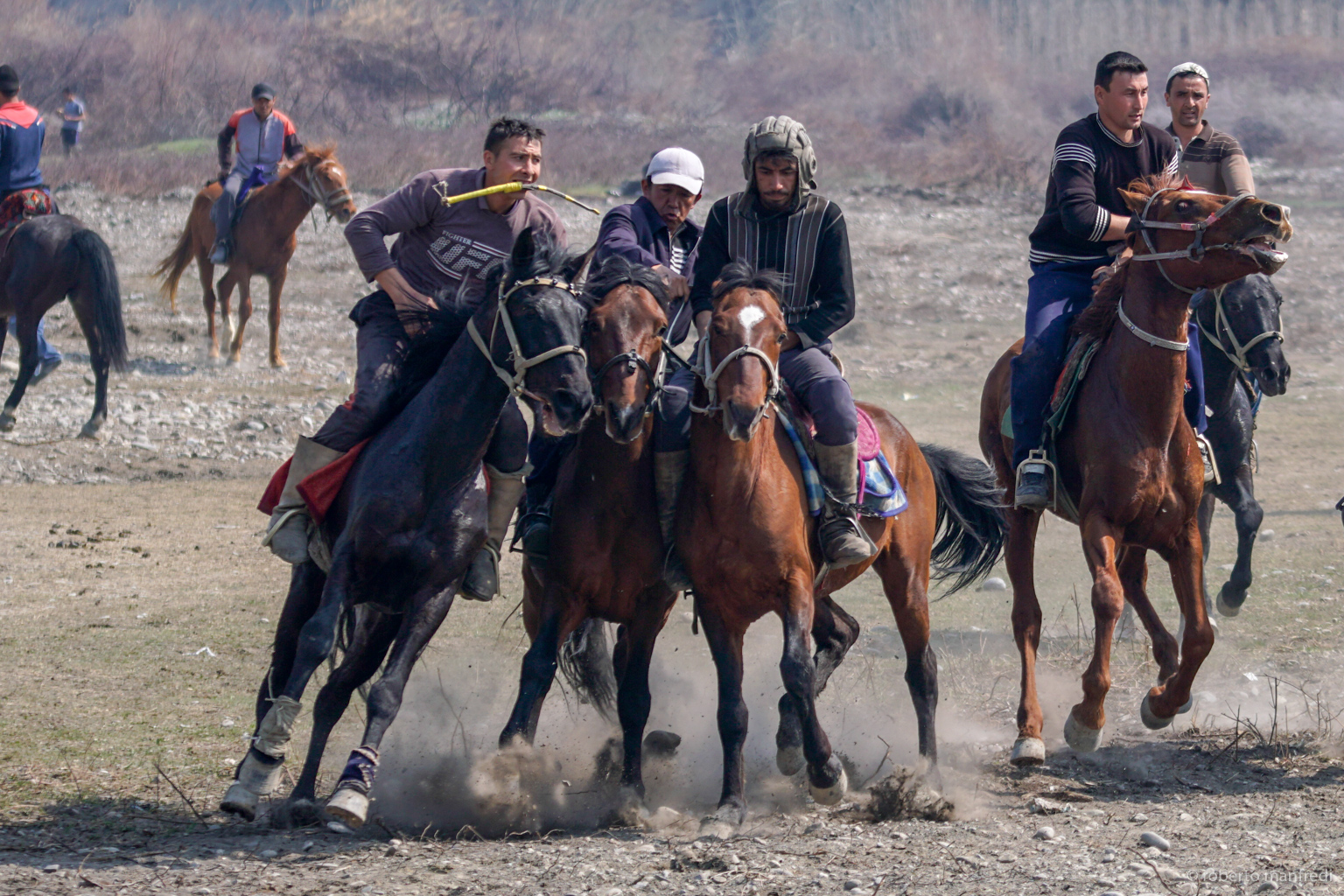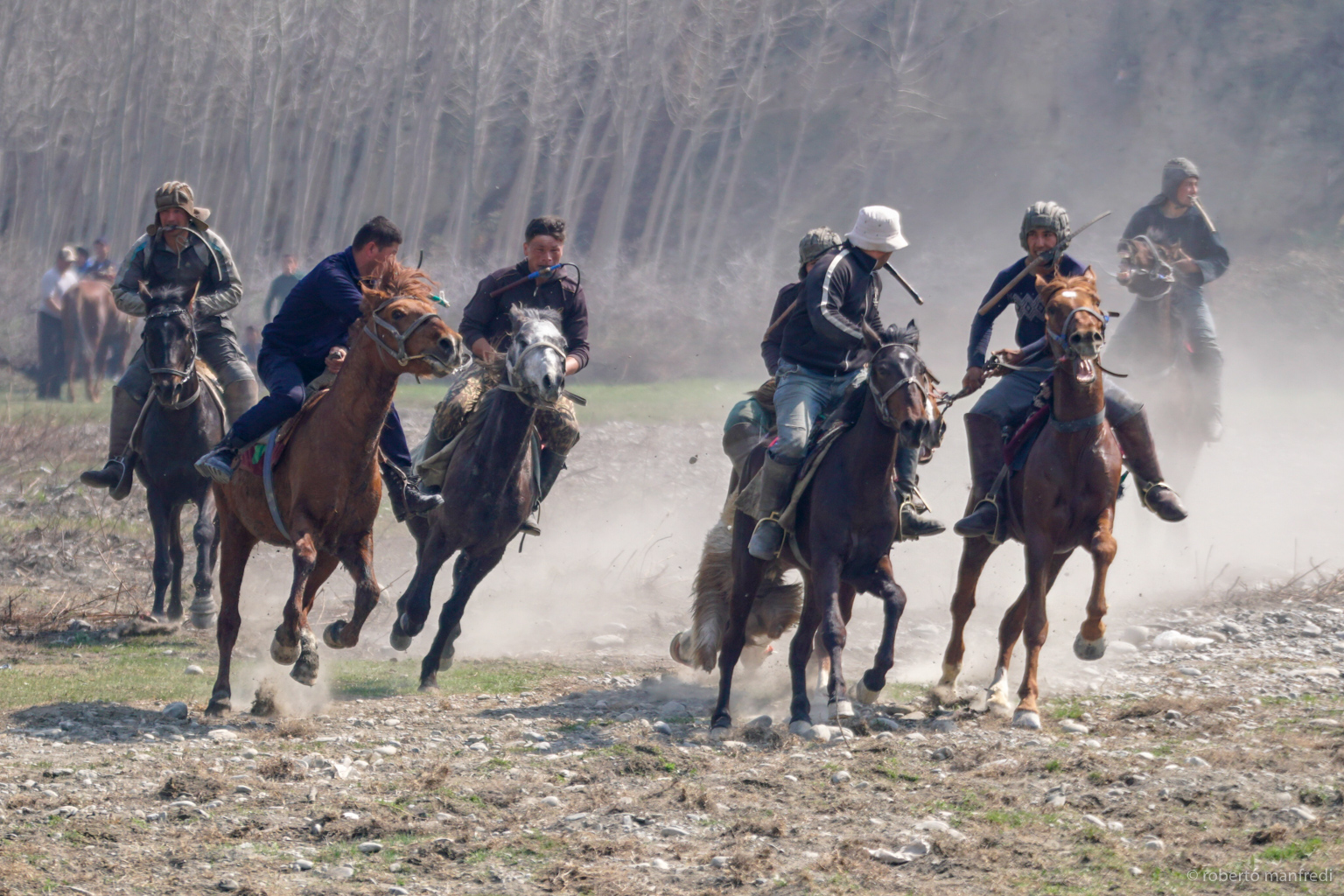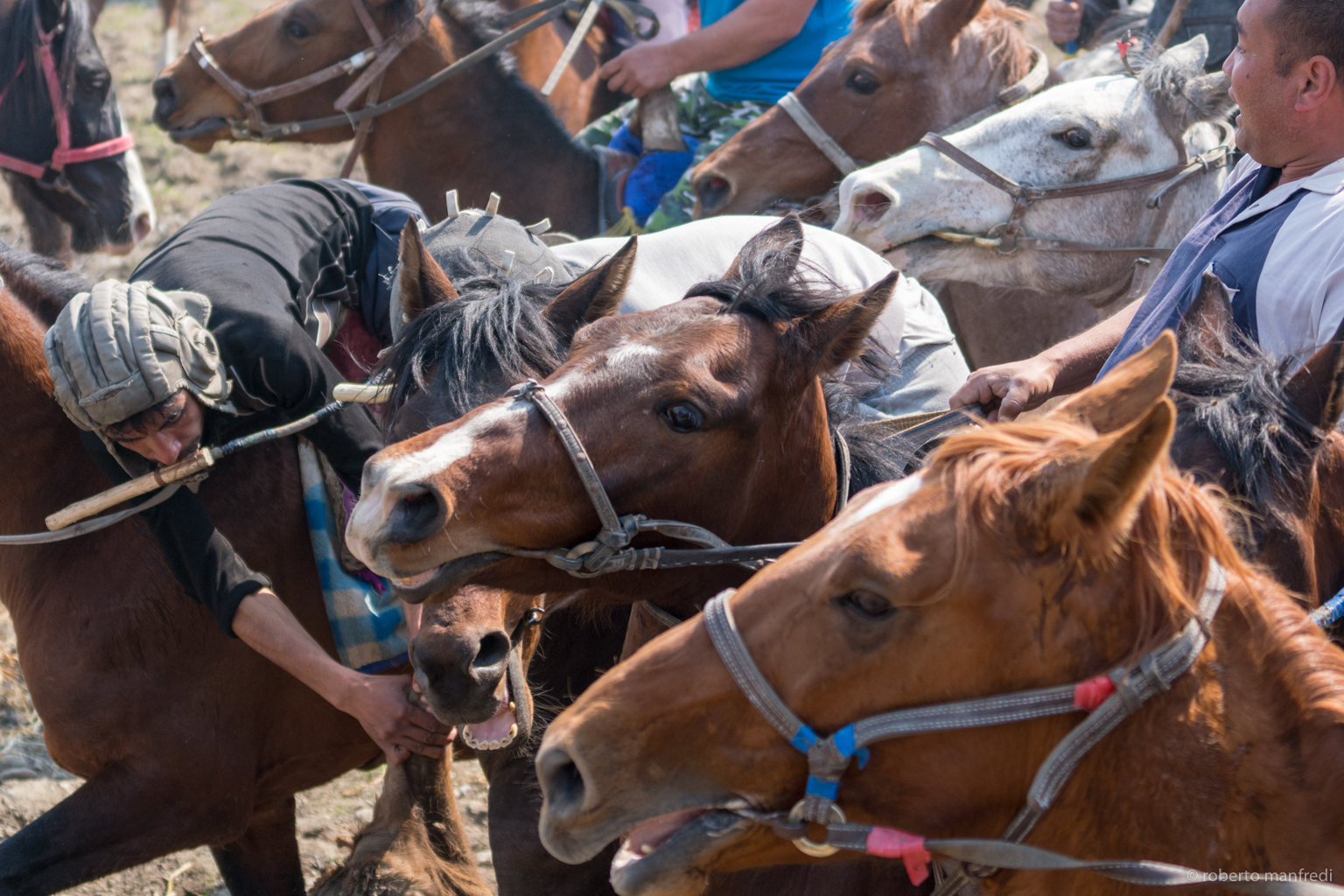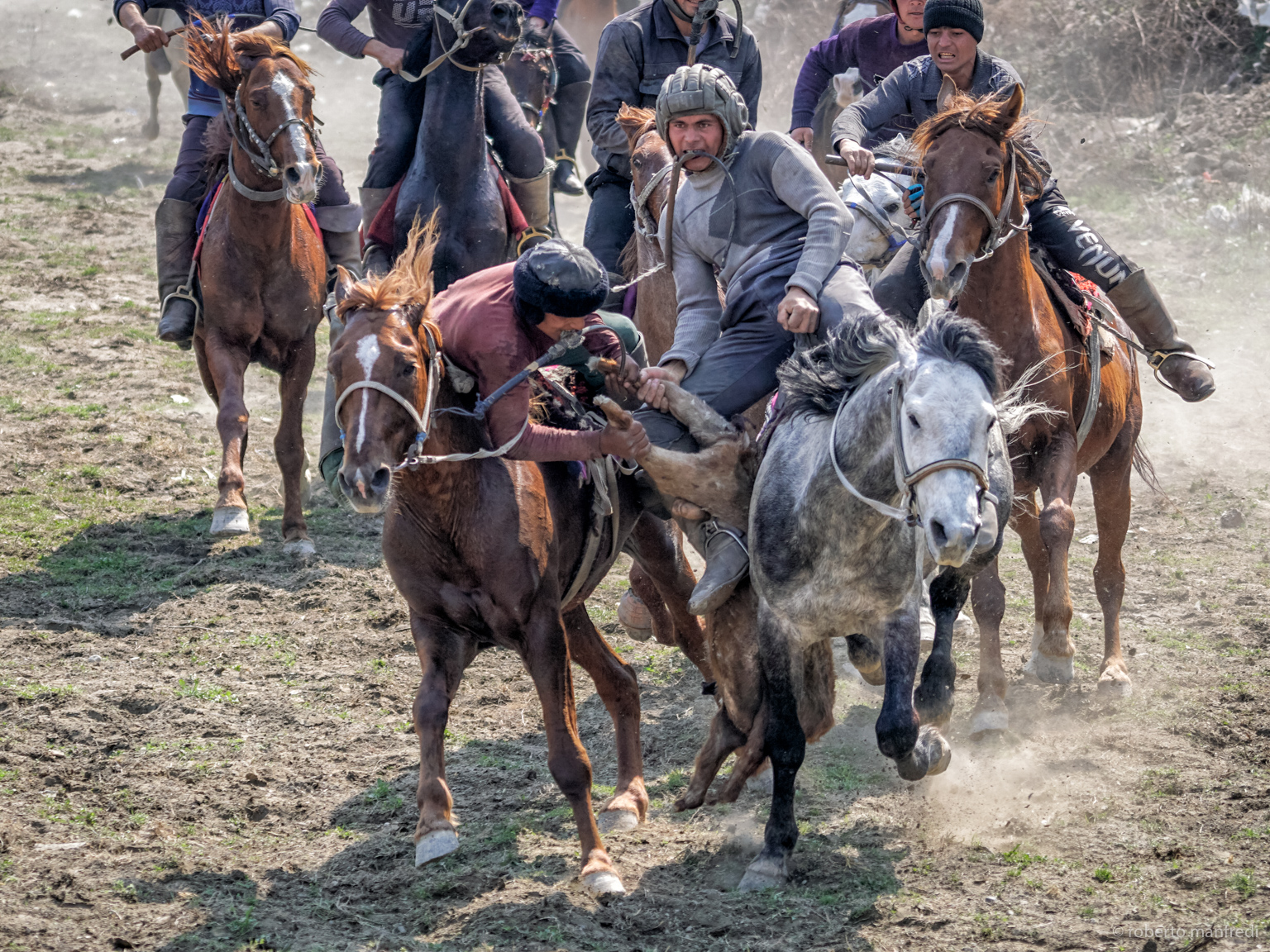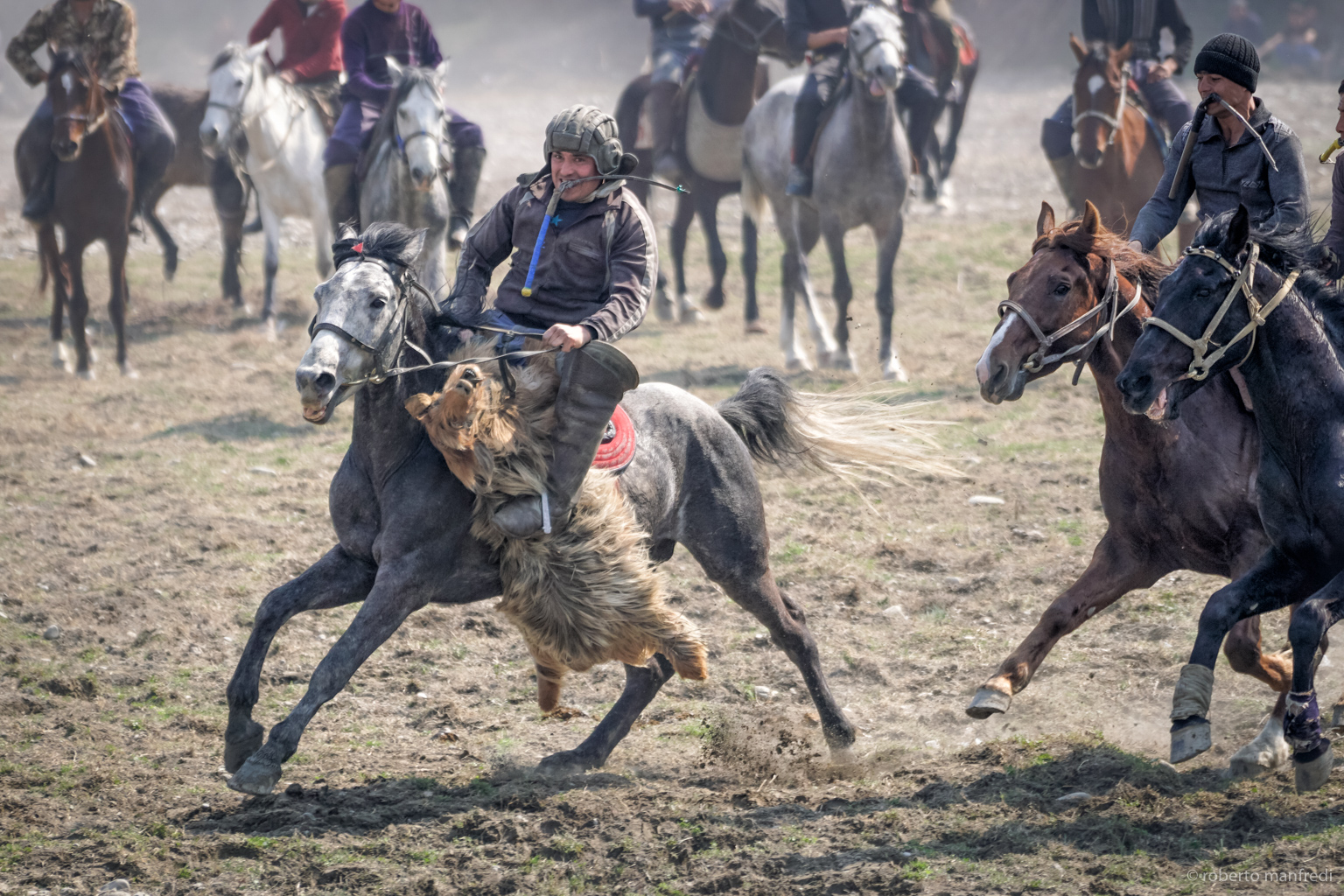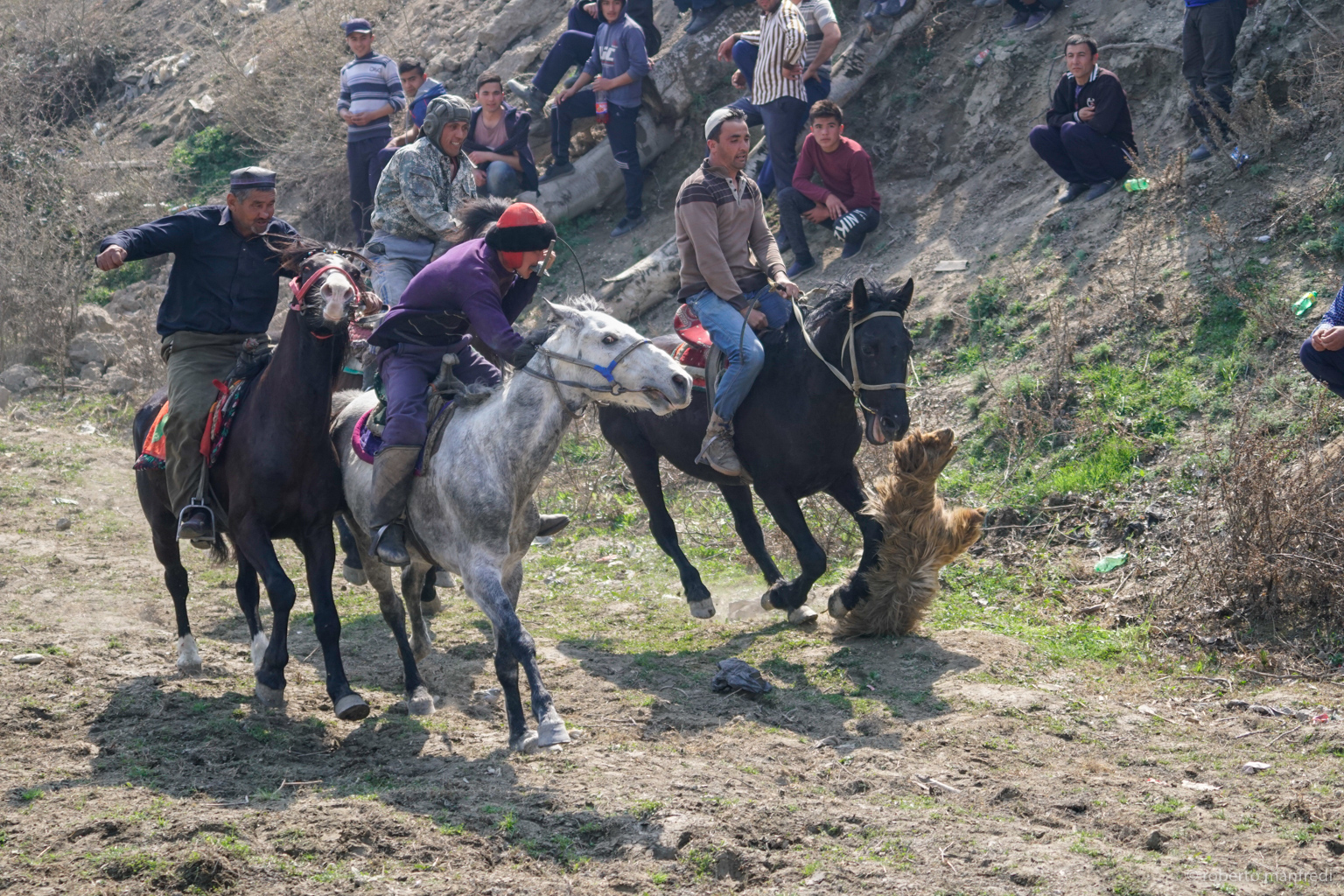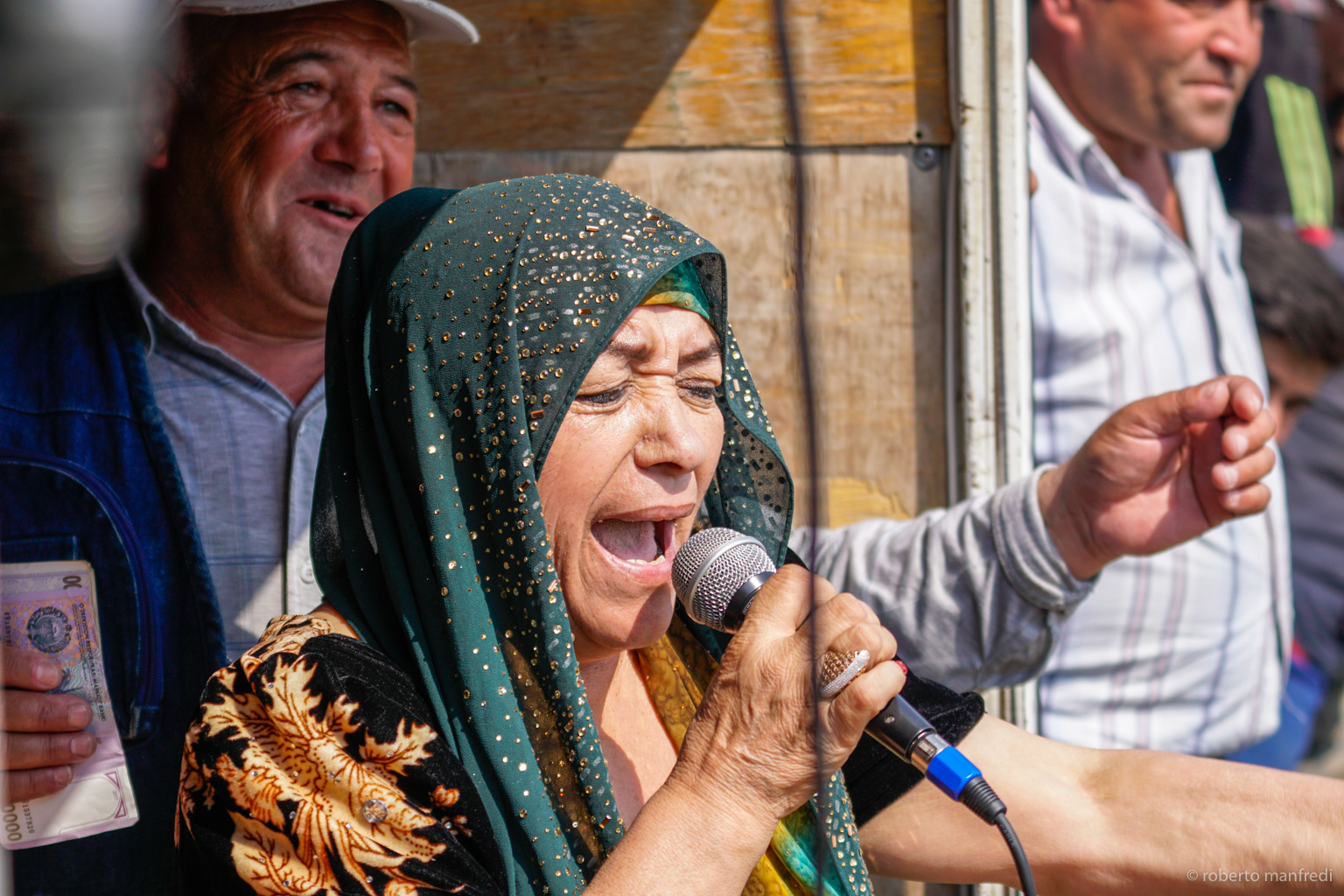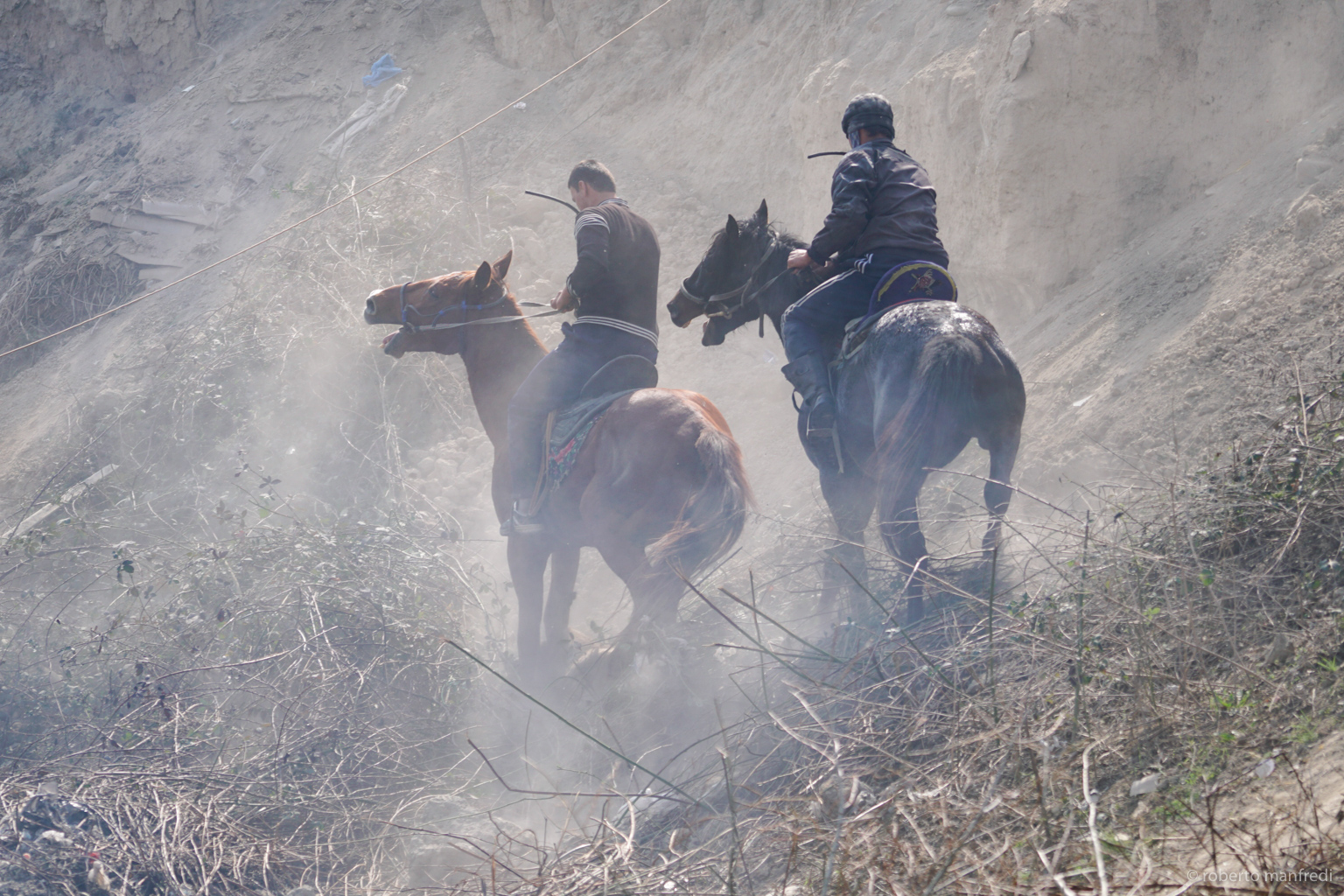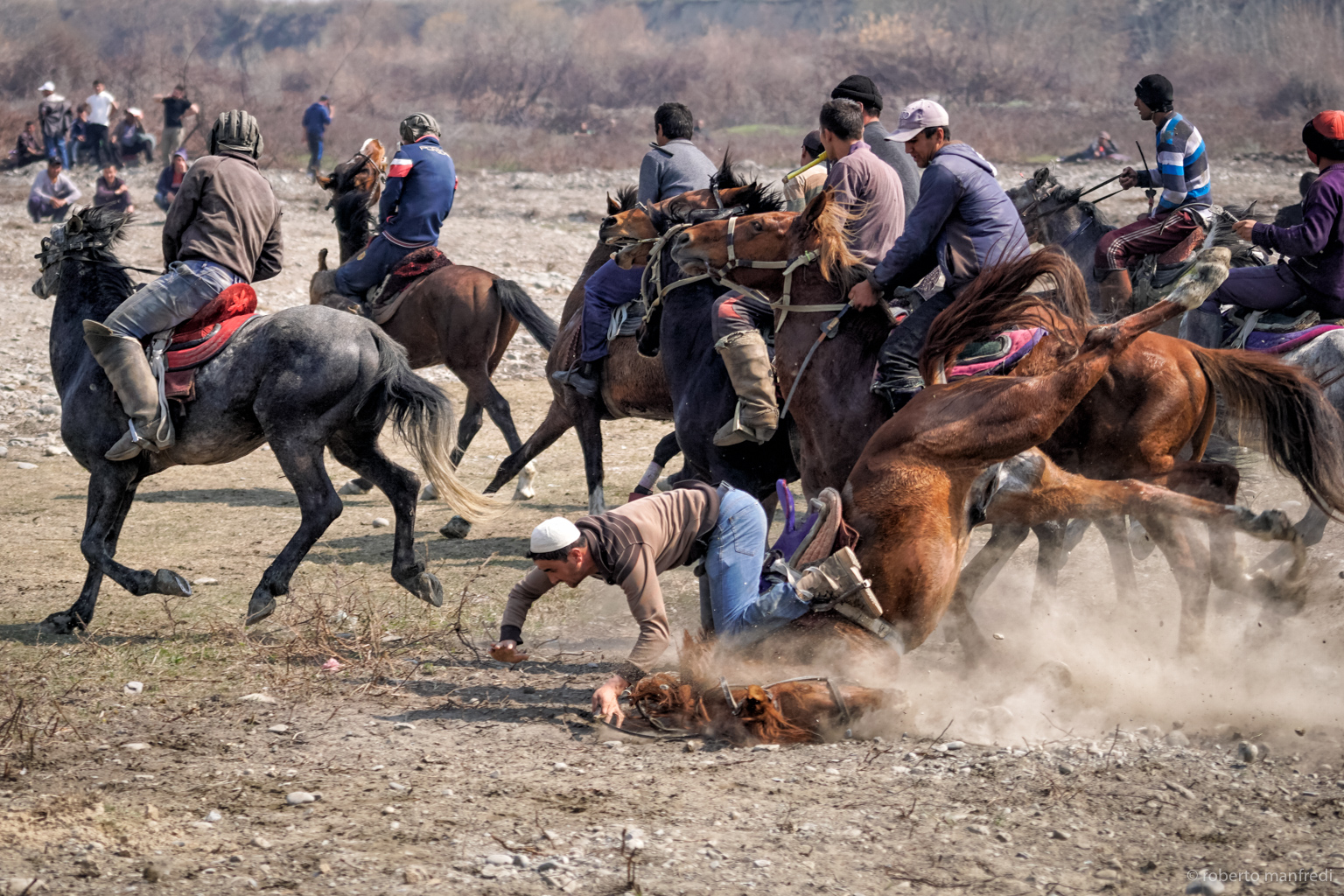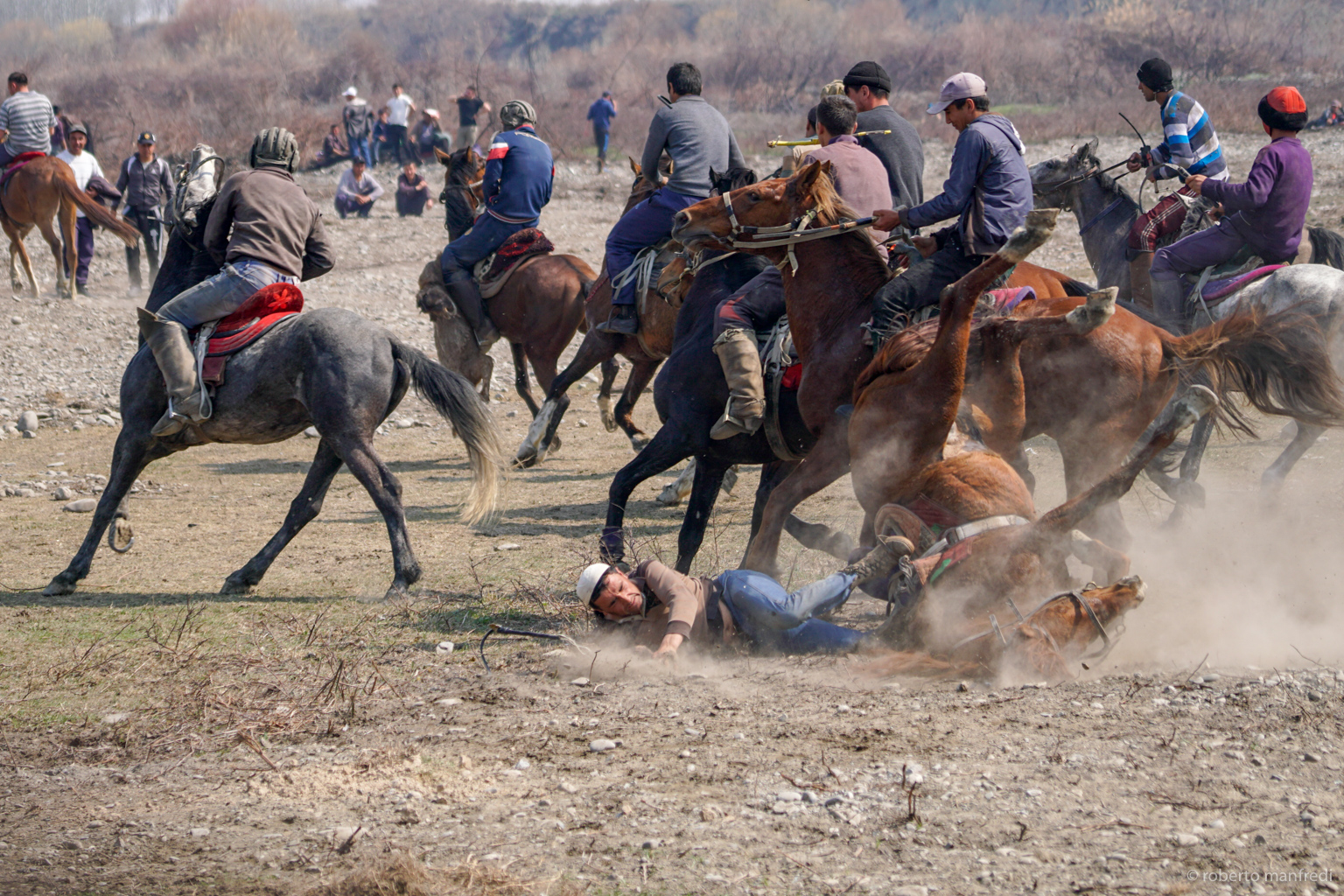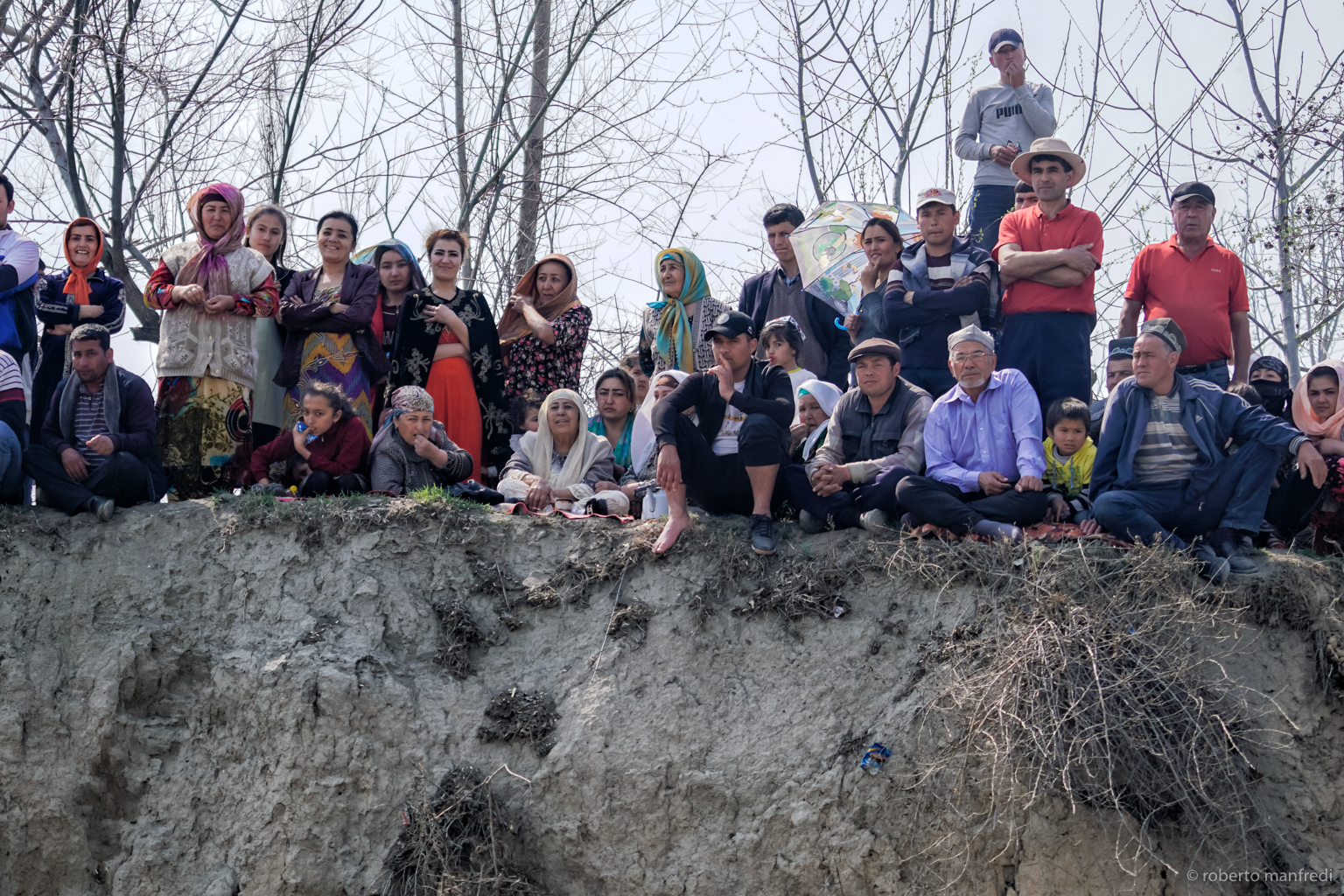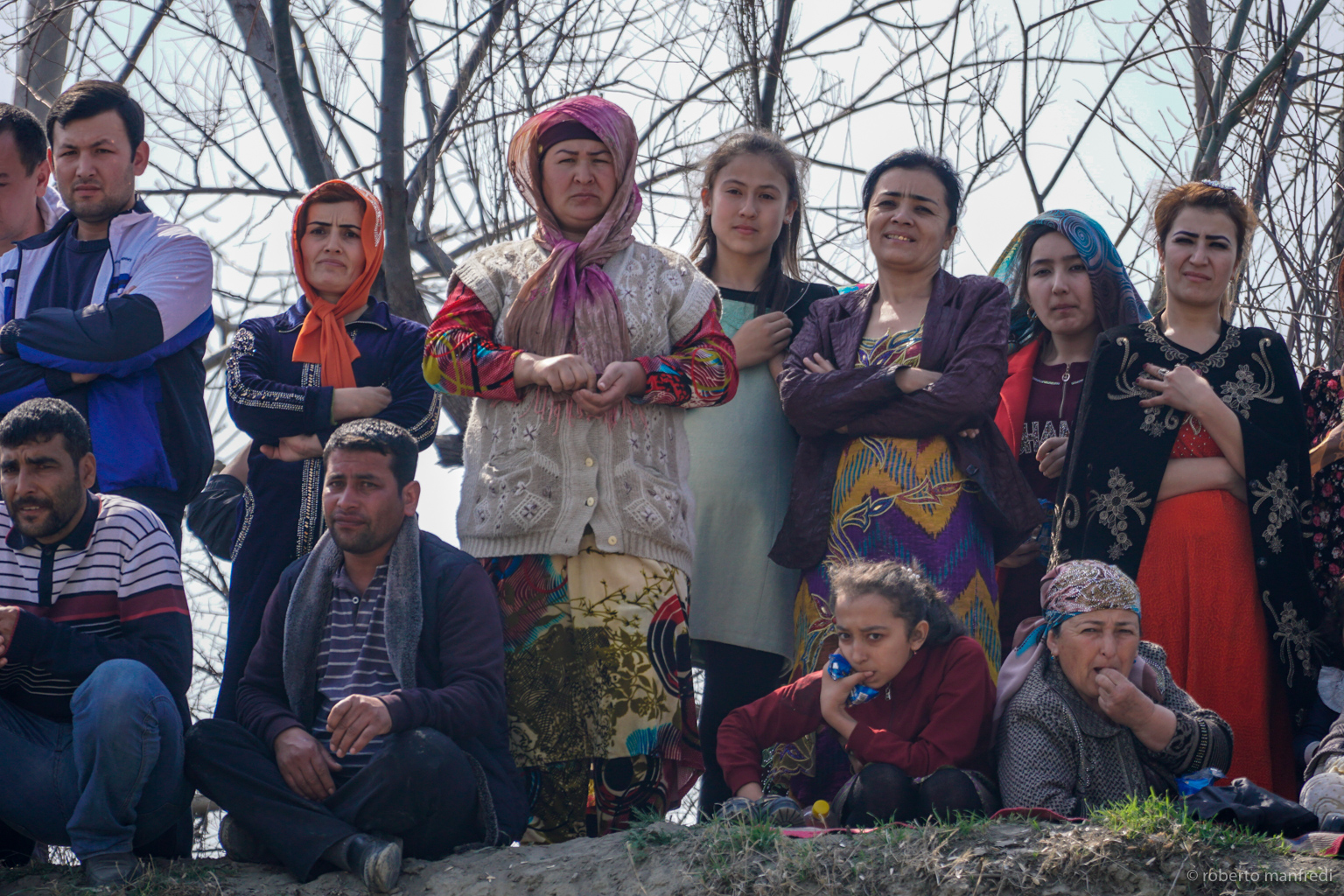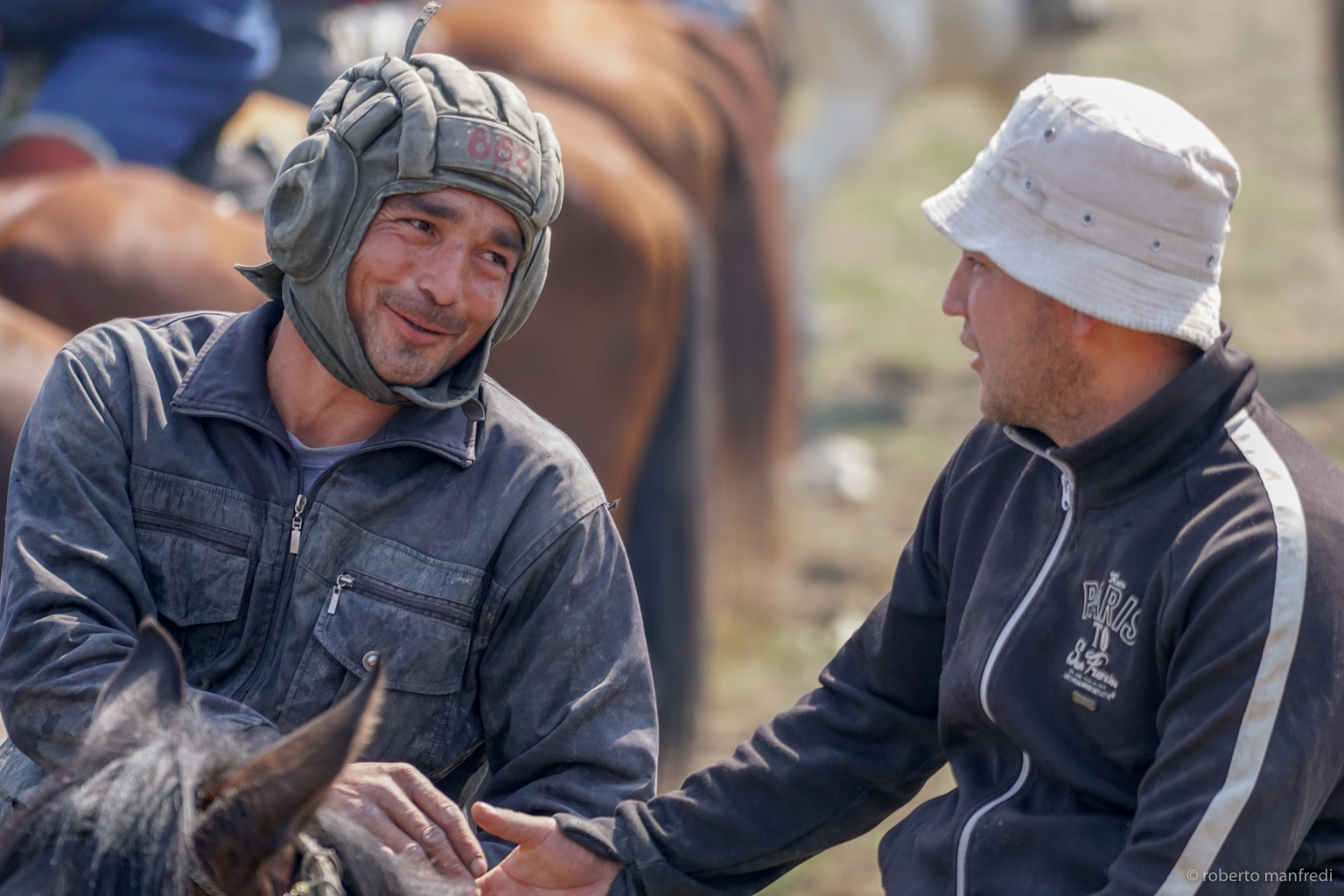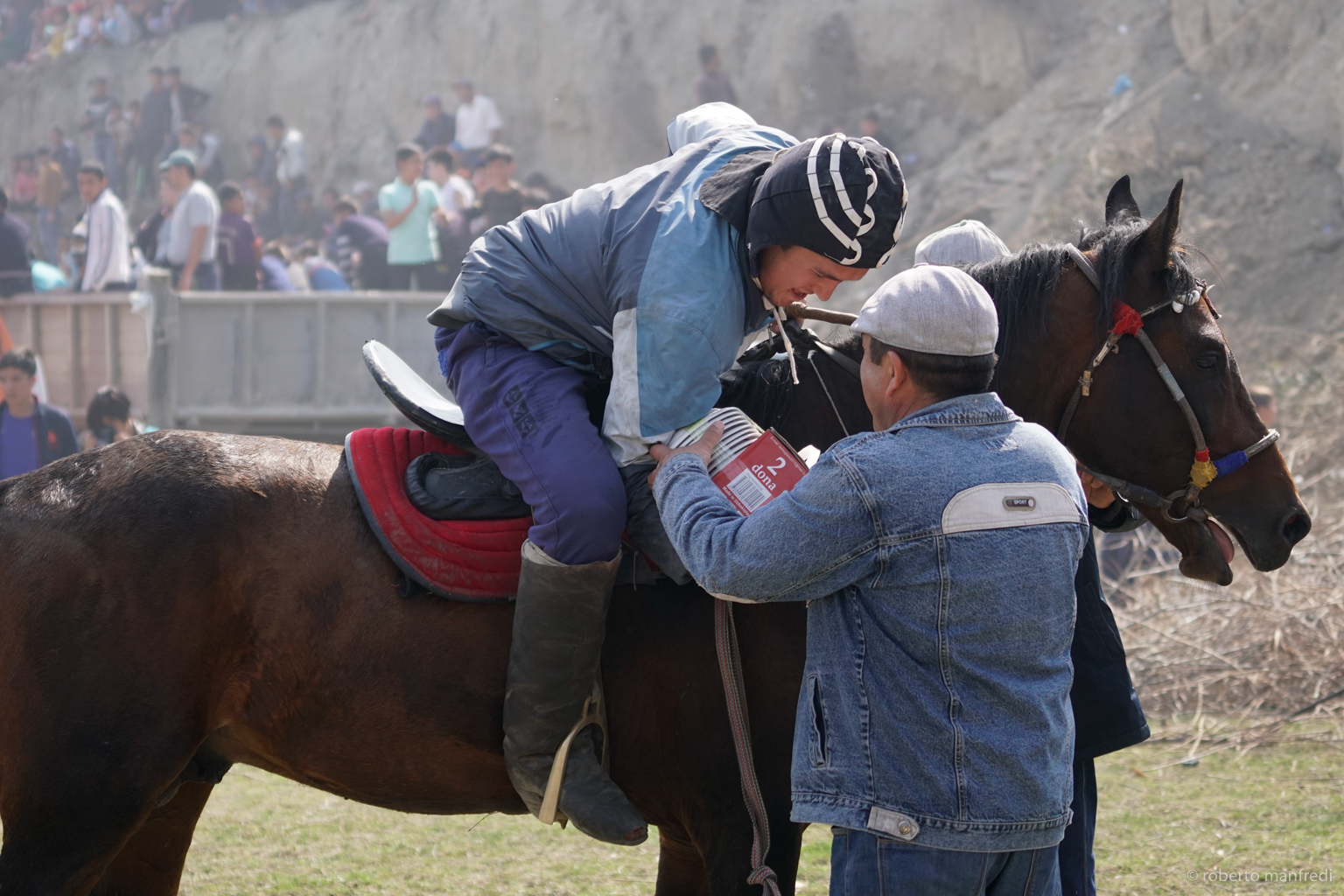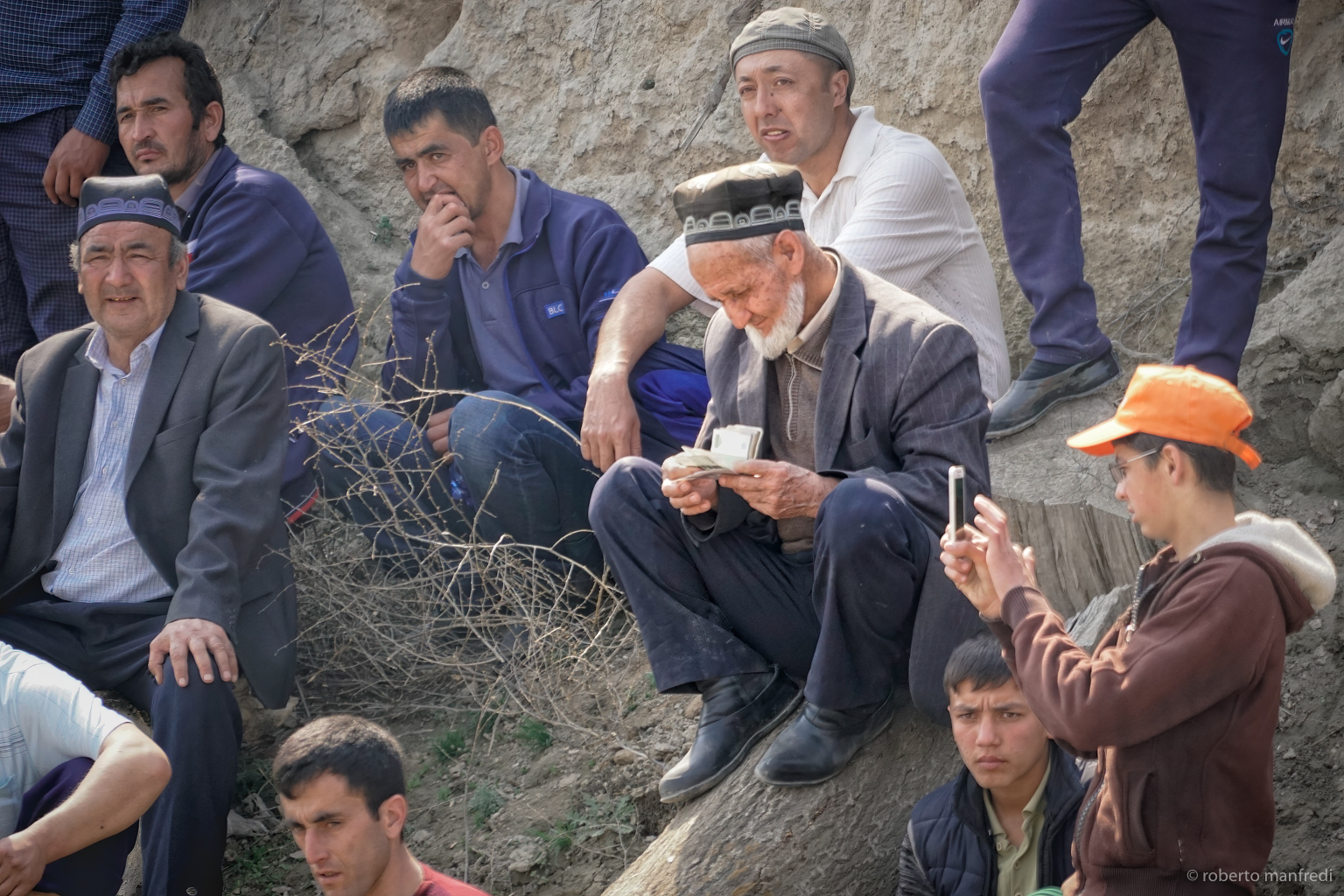The Kupkari
Catch the goat! This is the meaning of the Uzbek word Kupkari and of the corresponding parsi word Buzkashi. It is an ancient equestrian sport, very popular in Uzbekistan and in many countries of Central Asia.
In a large field many dozen or, often, hundreds of riders compete for the carcass of a lamb or a goat. The winner is the one who manages to drop the carcass in a pre-assigned area. The player who succeeds is rewarded, then the animal's body is returned to the center of the field and they start again.
There are many variations of this sport: it can be played by two opposing teams or individually, one against all. In some countries, such as Kazakhstan (where the game is called kökbörü), championships are even held and teams face off in real uniforms. In the villages of Uzbekistan is practiced the oldest and most genuine versions of this sport: it is played individually and the competitors' clothing is free and absolutely functional; many knights wear characteristic padded cloth helmets, military remnants once used by the Soviet Red Army tankers.
There are few rules: it is forbidden to hit an opponent with the whip and try to make him fall from his horse. Everything else is allowed. The rider in temporary possession of the carcass holds it by tightening it to the horse's body with one leg, while the competitors chase him and try to flank him to tear it off, and to do so often take acrobatic positions on the running horse.
Horses are spurred on with whips obtained from the transmission belts of car engines, and when players need hands to compete for the carcass, the whips are held between their teeth.
Il pubblico segue il gioco in posizioni sicure, dall’alto di un crinale o dietro una barriera di veicoli, facendo il tifo per i propri beniamini e scommettendo sui vincitori; i premi sono semplici e di valore poco più che simbolico: una batteria di stoviglie, un servizio da tè o un cuscino in memory foam…
Kupkari is a centuries-old game and its origins are unknown, but it was almost certainly born in the Amo Darya River region, the longest Central Asia river, which separates present-day Uzbekistan and Turkmenistan. It seems that the Mongol invaders of Genghis Khan plundered the villages grabbing goats and sheep as they crossed them on their running horses; the victims of the looting would then try to retrieve their cattle in the same way, riding through the Mongol encampments at a run. The sheep would have been fought over by riding fast; these disputes would then be reproduced for fun, thus giving birth to the Kupkari.
Kupkari is played at parties or weddings, when the agricultural season begins and ends and on many other occasions. The match told by these photos was held in Samarkand on March 21, 2018, the day of Nowruz, the New Year of the Zoroastrian calendar.
Finally, a curiosity: in Argentina a game similar to Kupkari, called “pato”, is played, where a ball with six large handles is used instead of the carcass.

